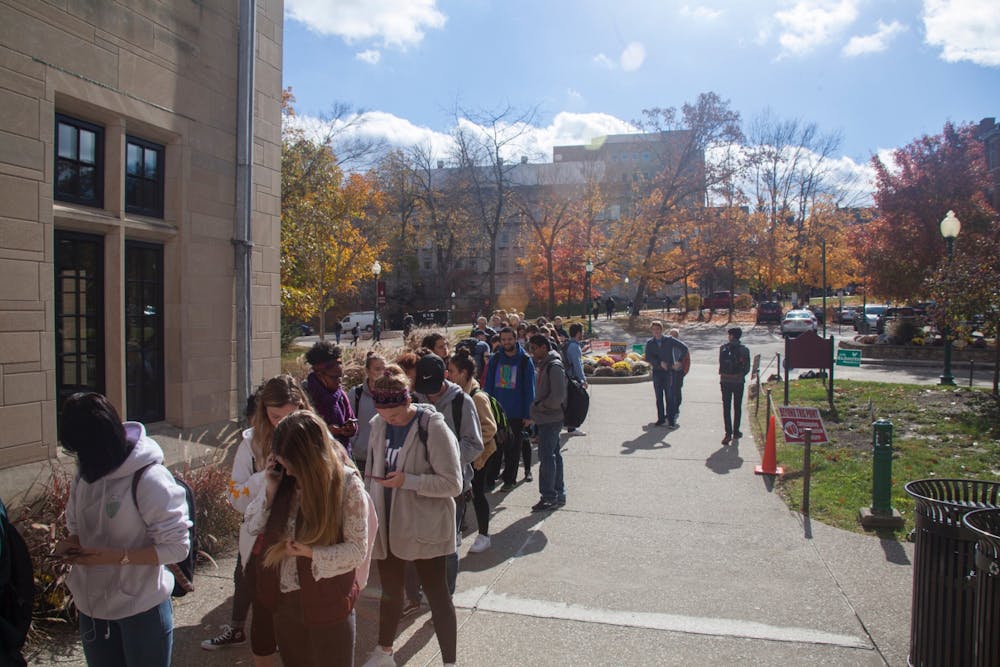Citizens of democracies tend to think of elections as the lifeblood of democracy, but in the U.S., rampant voter suppression and uninspiring and uninspired candidates have led to disengagement. We face problems that require ingenuity and political courage, but elections encourage just one type of person to run: performers.
That is not to say they are never competent and hardworking, but the room where it happens is full of people with extroverted, people-pleasing and power-loving personalities. They also tend to have similar talents and similar expertise. For example, over half of Senators have law degrees, compared to less than 1% of the U.S. population.
There is a lack of outside-the-box legislative problem solving because we elect people who come from the same box. There could be another, more representative way.
Democratic lotteries have gone out of fashion since they were used in ancient Athens 2,000 years ago. The group Democracy in Practice, co-founded and directed by Adam Cronkright, is reviving the concept with student governments.
Students who would like to be members of student government select colored beans from a jar. Whoever selects purple beans, for example, will be on student government, and whoever selects green will not be. According to Cronkright, high schools that have done this have found their student governments are more representative of the student body as a whole.
In the same interview, Cronkright explained that since lotteries aren’t popularity contests selecting people with similar personality types or in the same friend groups, student governments formed this way tend to do more meaningful and more diverse work. Instead of organizing a school dance, the student governments Cronkright and his team helped to form via lottery got first aid kits for their school and educated their peers about how to protect themselves from human trafficking, for just a couple of examples.
Elections privilege candidates who have personality traits we mistake for leadership potential. Domineering is misunderstood as confidence, and charisma is misunderstood as competence. When we elect a candidate, we are predicting how that person will perform. We base those predictions on traits that are not as predictive of leadership potential as we think.
Democracy by lottery, on the other hand, would give us a more representative set of representatives. It would end gatekeeping. Legislative bodies formed by lotteries would be more fully of, by and for the people.
We shouldn't start with the highest office in the land — lotteries should be used for legislative, not executive, bodies. But we could start on campus.
The two campaigns of the last IU Student Government election, Defy and Inspire, had overlapping goals and candidates who were members of clubs heavy on public speaking and networking. A lottery could create a more effective and representative IUSG than two similar campaigns with similar goals led by people with similar personalities and interests spending thousands of dollars on an election in which just over 10% of the student population votes.
There are valid criticisms of democratic lotteries. You might say it works for student government as a participatory form of civics education, but that in real life, it would make people feel like they have no say. What if somebody incompetent or lazy chooses a purple bean?
You should raise the same questions about elections. Skills that make a successful campaigner often do not make a successful leader or team member. Incompetent and lazy people win elections all the time, often thanks to their wealth or to voter suppression.
If you worry that democracy by lottery would reduce political efficacy, about 40% of Americans already feel like their vote has little to no meaningful influence on governance, and only about 60% of voting-age citizens turn out to vote in any given presidential election year.
Democratic lotteries might not be a silver bullet, but they might lead to better and more democratic outcomes than elections currently do. With our broken elections, we don’t have much to lose by trying something new.
There are plenty of competent people who would never dream of campaigning, even if they’re willing and able to lead. If democracy is of, by and for all people, why should we miss out on their ideas and abilities just because they aren’t performers?
Democratization is about increasing the extent to which we share power with our fellow citizens, and democracy is about ensuring power is not wielded by the few against the many. If we cling to a system that is not doing that, out of habit or fear of testing something new or confidence that we can make a broken system work to our advantage, we don’t really care about democracy at all.
Kaitlyn Radde (she/her) is a junior studying political science. She plans to pursue a career in academia.






